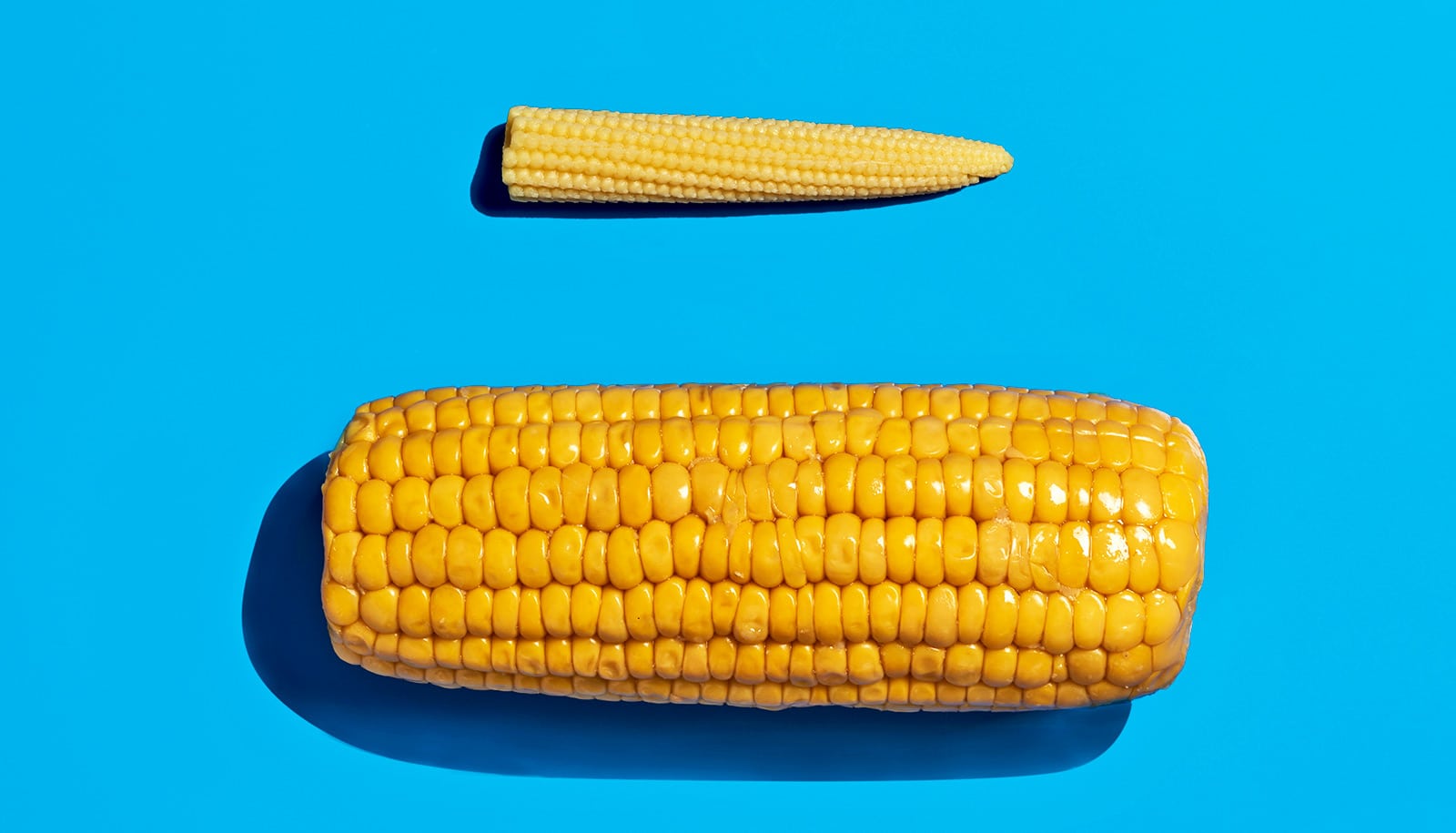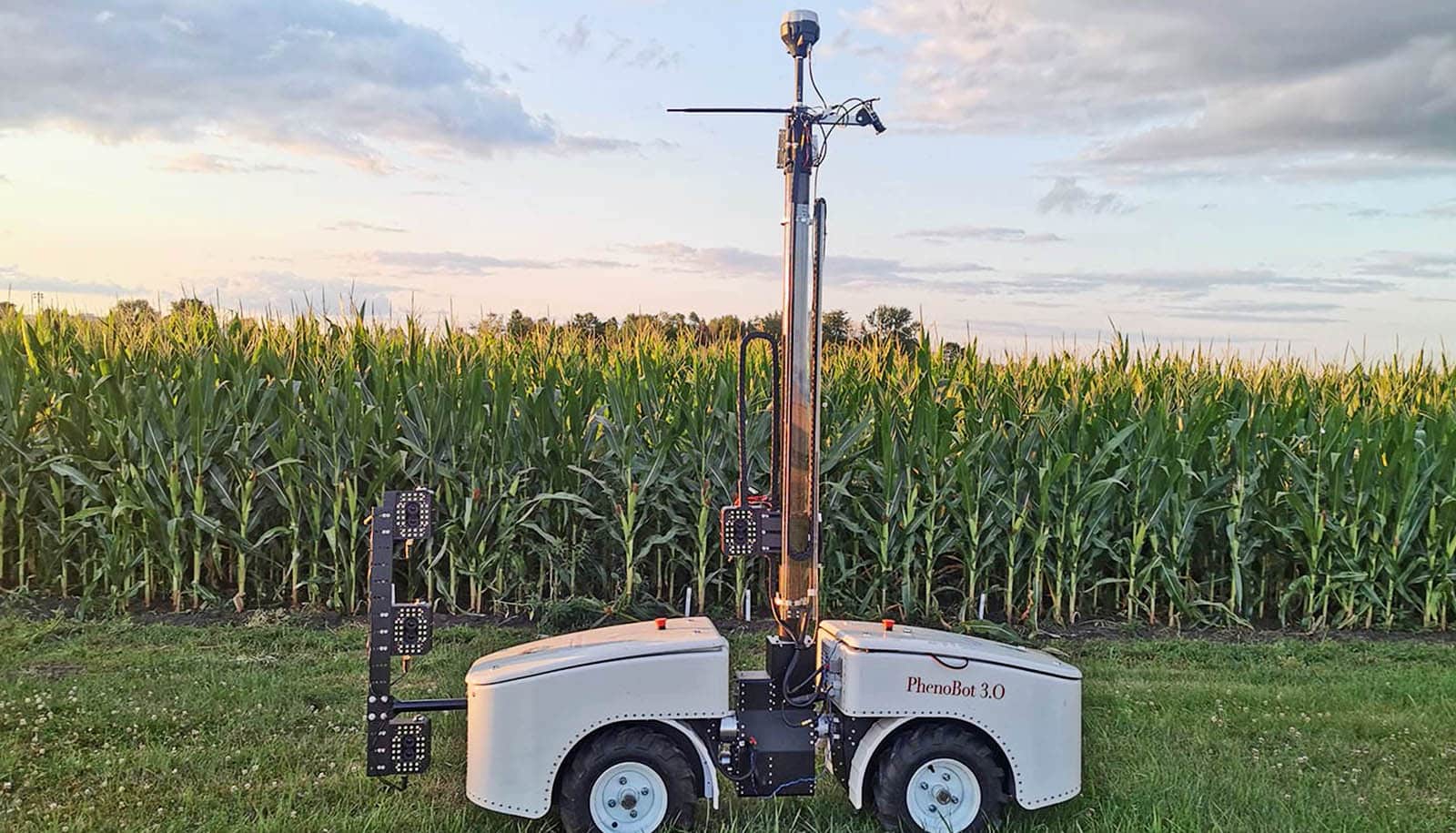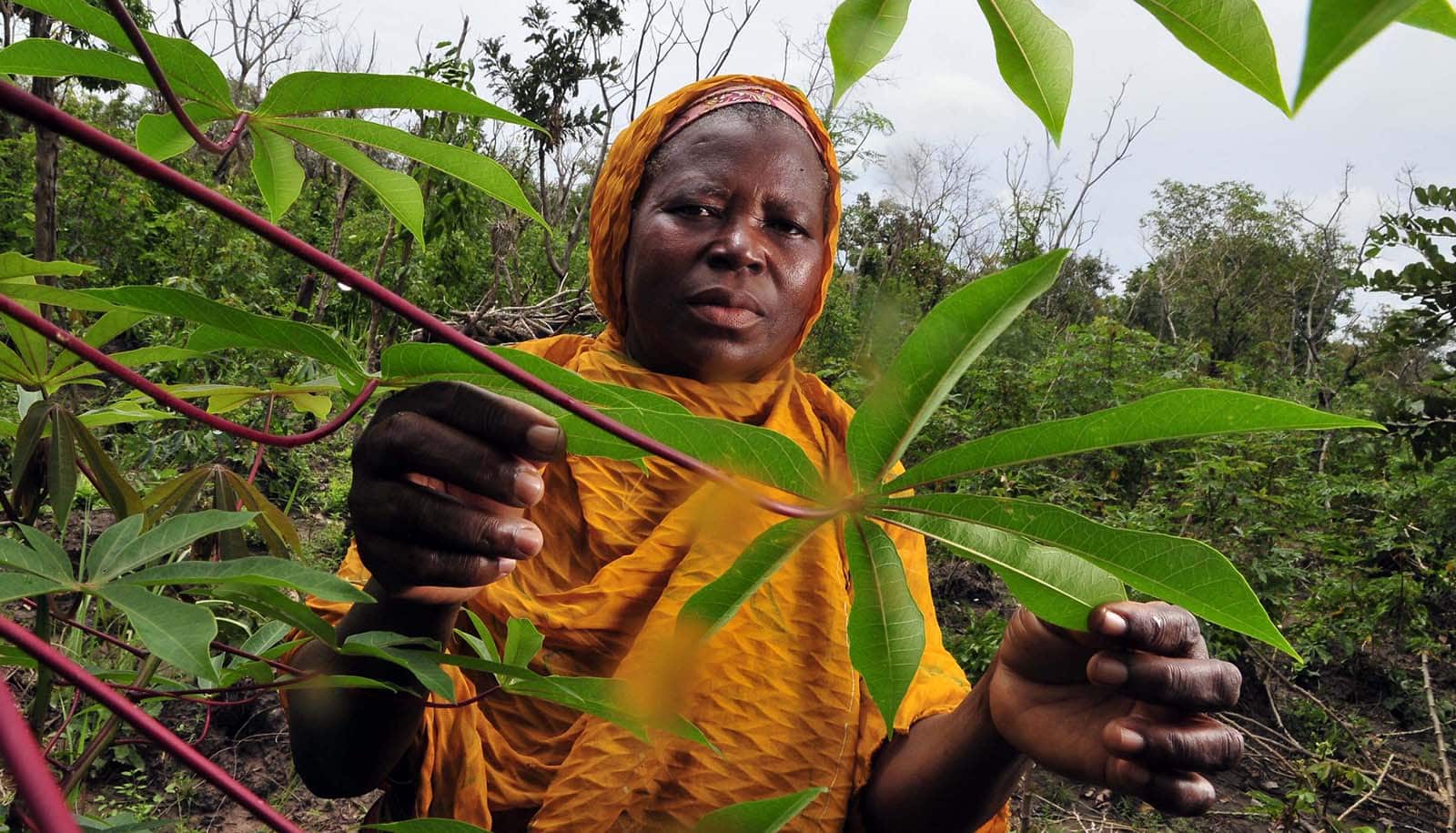
(Credit: Getty Images )
Gene discovery could lead to resilient ‘pixie’ corn
Research offers corn breeders a new tool to develop desirable dwarf varieties that could boost the crop’s resilience and profitability.
Researchers have identified a widely found gene in plants as a key transporter of a hormone that influences the size of corn.
The discovery offers plant breeders a new tool to develop desirable dwarf varieties that could enhance the crop’s resilience and profitability.
A team of scientists spent years working to pinpoint the functions of the gene ZmPILS6. Now, they have been able to characterize it as an important driver of plant size and architecture, a carrier for an auxin hormone that helps govern growth in roots below ground and shoots, or stalks, above ground.
Their findings are published in the Proceedings of the National Academy of Sciences .
“A hallmark of the current age of science is that we have all this high-quality genome data, whether for corn or humans or other organisms, and now we have the task of figuring out what the genes actually do,” says Dior Kelley, assistant professor of genetics, development and cell biology at Iowa State University, who led the research team.
The group used “reverse genetic screening” (from the gene to traits expressed in the plant), combined with other techniques, as they tracked their gene’s role in corn development. Reverse screens require multiple growing seasons and don’t always work, according to Kelley. It took seven years for her group to thoroughly characterize ZmPILS6 and verify it regulates plant growth.
When “knocked out” of modified, mutant plants, its absence suppressed root lateral formation and plant height. The research has led to a provisional patent for its potential to be used in breeding programs to create short stature corn that is still highly productive.
“I think of this as ‘ pixie’ corn ,” Kelley says. “There’s a lot of interest in it for all kinds of reasons, including reduced use of water and nutrients and its ability to withstand high winds.”
As they studied ZmPILS6 in corn, the researchers made another curious finding: The gene seemed to have opposite effects on plant growth than a comparable gene in Arabidopsis , a plant often used as a model for research.
“This was very unexpected,” Kelley says. “It illustrates that plant proteins, which have evolved in different contexts, can behave differently. It emphasizes the need to study genes directly within key crops of interest, rather than thinking we understand them based on how they work in other plants.”
Kelley calls the new research “foundational” basic research to understand a gene that impacts numerous, complex growth traits, which evolution has conserved through many plants, from algae to maize.
“It is also ‘translational,’ in that it links to genetic resources that can be used to improve breeding programs,” she says. “This opens up whole new questions and facets of research for my laboratory.”
Additional coauthors are from Iowa State; Duke University; and the University of California, Riverside.
The USDA National Institute of Food and Agriculture and USDA Hatch start-up funding from Iowa State University’s College of Agriculture and Life Sciences funded the work.
Source: Iowa State University
The post Gene discovery could lead to resilient ‘pixie’ corn appeared first on Futurity .
Share this article:
This article uses material from the Futurity article, and is licenced under a CC BY-SA 4.0 International License. Images, videos and audio are available under their respective licenses.
Related Articles:
Robot rolls through fields to measure corn leaves
March 7, 2023 • futurityHow some cassava plants evade mosaic virus
July 27, 2022 • futurityLinks/images:
- https://www.pnas.org/doi/10.1073/pnas.2313216121
- https://www.futurity.org/corn-nutrition-genetic-regulators-2070122/
- https://www.futurity.org/predict-crop-traits-seedlings-corn-2251912-2/
- https://www.cals.iastate.edu/news/2024/scientists-identify-gene-could-lead-resilient-pixie-corn
- https://www.futurity.org/corn-plants-hormones-genes-3224492/
- https://www.futurity.org


